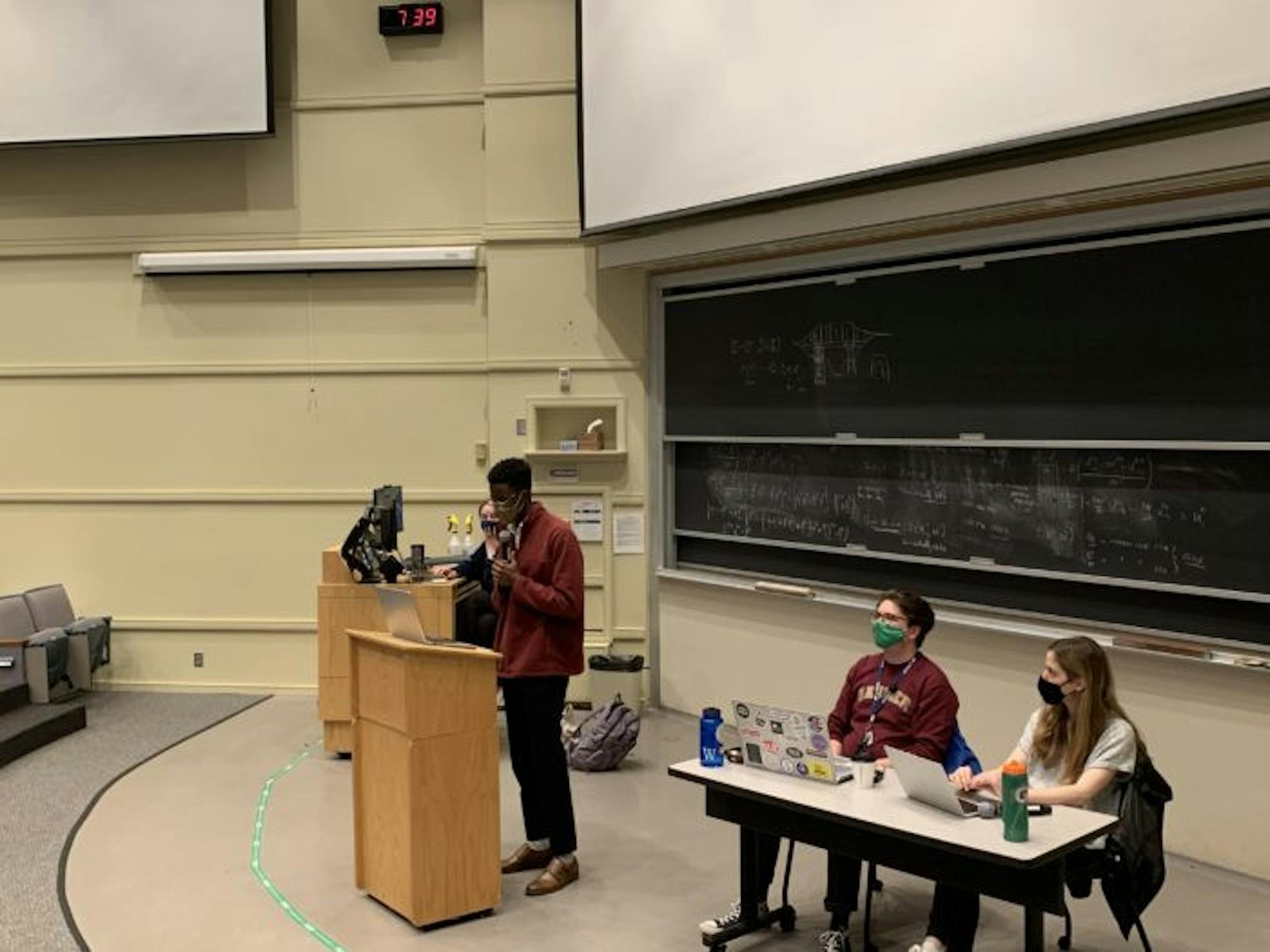The Notre Dame student senate commenced with a prayer from student body vice president junior Matthew Bisner for migrant workers — a homage to labor day — and then proceeded with executive announcements. These announcements included the state of the student union address and comment on the upcoming student and faculty voice summit. Next, the senate discussed Callisto, a sexual assault prevention tool, an update on Welcome Week and procedural orders.
Student body president junior Allan Njomo delivered the address. He first commended the previous senate, whose “service over the past year served as an inspiration and motivation” for the current senate due to their adaptability and grit. He also praised the vice president of student affairs Erin Hoffman Harding, who plans to step down this year, for her work with student government. 
Njomo reminded the senate of the upcoming student and faculty voice summit on May 30. The summit aims to discuss how post-COVID-19 classroom operations will look like next semester.
“Our hope is that we can use the summit model to foster further discussions with the administrators and students on university policy and the upcoming school year,” Njomo said.
Njomo also expressed approval of the Callisto serial sexual assault prevention and protection tool, which “facilitates collective action” toward sexual assault on campus. Junior and director of gender relations Hallie Butterfield has led the effort on campus.
Njomo concluded his address with his vision for a stronger community and asserted, “we are honored to be in the roles, and we are ready to be in service.”
Afterward, the senate proceeded with committee reports, starting with an update on Welcome Week. Several senators met with program director for new student engagement Lauren Donohue and program director for first-year student engagement Andrew Whittington about Welcome Week. According to Donohue and Whittington, the plan to decrease the number of Welcome Week ambassadors has been in formation for several years. This effort intends to make Welcome Week more inclusive, address hazing and more effectively train ambassadors.
Although the administration decreased the number of ambassadors, they expect hall staff and government representatives to be more hands-on with helping students move in.
Chief of staff junior Alix Basden said she believes that despite failing to involve students in the initial conversation about Welcome Week the administration “did think this was in our best interest... and wants to hear from students.”
Butterfield continued the conversation on the rollout of Callisto, which will begin the following semester. Callisto functions as a service for survivors of sexual assault to create a report and store it in an encrypted system. To report an instance of sexual assault, survivors must report their name, the state in which the assault took place and an identifier of the perpetrator, such as an email or phone number. According to Butterfield, 90% of sexual assaults are committed by repeated perpetrators, so Callisto matches perpetrators and connects survivors to a legal counselor. Next semester, Callisto will encompass Notre Dame, Saint Mary’s and Holy Cross.
Following the committee reports, Bisner introduced the general order to approve the 2021-2022 student senate bylaws, which unanimously passed. The Senate also passed an order to revise Article III of the undergraduate student body constitution, which was amended to require a majority vote for resolutions rather than a supermajority. Article III transferred to the senate bylaws and no longer resides in the constitution.
Lastly, the Senate unanimously passed an order to suspend the deadline to approve the student union organization budget. Now, the budget will be approved on May 11 instead of May 1 due to delays from COVID-19 over the past year.
In the following meeting, the Senate will address an order to lengthen the period of time required for the senate to respond to student petitions. Although the current period is one week, the Committee on the Constitution believes two weeks will interfere less with the established senate agendas. The senate will also potentially establish an electoral code, amend the electoral code’s regulations of endorsements and procedures for allegations and results and change the jurisdiction of the election committee.
Njomo delivers state of the student union address
Student body president Allan Njomo delivered state of the student union address
Student body president Allan Njomo delivers the state of the student union address









